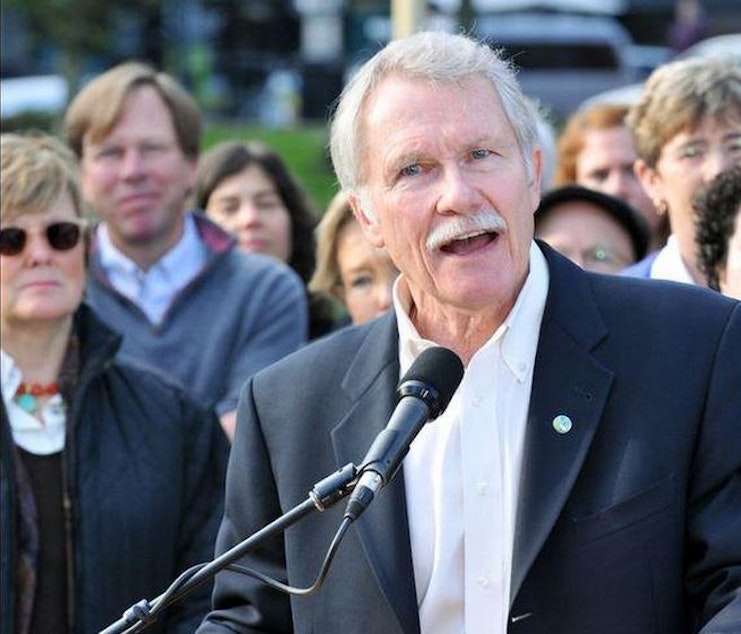Gov. John Kitzhaber Of Oregon Resigns, Blames Media

After months of scandal involving his fiancée, Gov. John Kitzhaber of Oregon has resigned.
In a four-page statement on Friday, Kitzhaber, 67, starts off by blaming the press.
"It is deeply troubling to me to realize that we have come to a place in the history of this great state of ours where a person can be charged, tried, convicted and sentenced by the media with no due process,” he wrote.
“It is something that is hard for me to comprehend something we might expect in Washington, D.C., but surely not in Oregon.”
He then lists what he calls his accomplishments, from bipartisanship to fixing the water crisis at the Klamath Water Basin to not invoking the death penalty in the last four years.
Buried toward the bottom is what pushed him to resign.
“The questions that have been raised about my administration, specifically allegations against me concerning the work done by my fiancée Cylvia Hayes and the contracts she obtained during my last term and the escalating media frenzy that has stemmed from this has clearly reached the point of no return.”
Kitzhaber ends by saying that he did not break the law.
Salem correspondent Chris Lehman was at the Oregon state capitol before news broke.
"There's an extraordinary number of television crews here at the capitol. They're not here to cover the legislature,” Lehman said.
“They're staked out outside of the governor's office and on the grounds of the capitol.”
“There's nothing to compel him to leave except his own conscience at this point. He is the governor and remains the governor for as long as he wants to, at least for the time being."
Events leading to Kitzhaber’s resignation:
OCT. 8 — The Willamette Week newspaper reports that the governor’s fiancee, Cylvia Hayes, used taxpayer resources to aid her green-energy consulting business.
OCT. 9 — Hayes tearfully admits to a newspaper report that in 1997 she was paid $5,000 to marry an 18-year-old Ethiopian immigrant seeking to stay in the United States. Because the statute of limitations had passed, she is not prosecuted. When she told Kitzhaber about the marriage, “he was stunned and he was hurt,” Hayes says. “And I will be eternally grateful for the beautiful, loving way he has supported me in this.”
OCT. 13 — Hayes acknowledges that in the same year as the marriage, she purchased property in Washington state intended to be used for a marijuana-growing operation but denies participating financially, saying that the scheme “never materialized.” The man who sold the property says he found evidence that it did. Washington has since legalized medical and recreational marijuana, but the drug was illegal there in 1997.
FEB. 9 — Oregon Attorney General Ellen Rosenblum says she has launched a criminal investigation.
FEB. 11 — Secretary of State Kate Brown, next in line to become governor if Kitzhaber resigns, abruptly returns from a conference in Washington, D.C., fueling speculation that Kitzhaber is about to step down. Kitzhaber issues a statement saying he has no intention of doing so.
